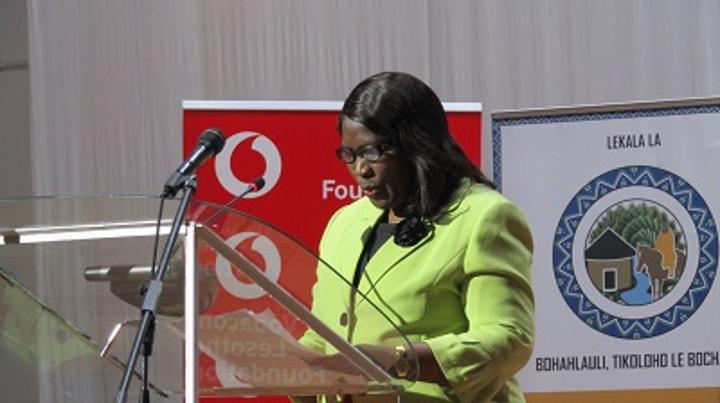Africa-Press – Lesotho. The Ministry of Tourism, Environment and Culture (MTEC) held an inception meeting to liberate on the project on Promotion of Circular Economy in the textile and garment sector through the sustainable
management of chemicals and waste in Lesotho. Speaking at the meeting, the Minister of Tourism, Environment and Culture Hon. Ntlhoi Motsamai indicated that the
project is financially supported by the United Nations Industrial Development Organization (UNIDO), which came “at the right time when the ministry needed it
most”. Motsamai noted that the evolution of mankind has impacted the living dynamics as well as adaptation patterns which all have positive and negative
aspects on social, economic, technological and environmental integrity and she stated that in the context of this project, the focus is on emerging and
escalating environmental related challenges in waste management. “Waste is a global problem that is escalating proportionally with economic and population growth, as such, it requires governments
to strengthen their waste management strategies. We will only succeed if we all pull efforts and work together with the private sector in combating waste
management challenges. My ministry has embarked on a number of projects that have the same objectives of addressing waste management challenges, with the
support of UNIDO, we are implementing a project; ‘Promotion of Best Available Technologies and Best Environmental Practices’ to reduce unintentionally
produced Persistent Organic Pollutants released from waste open burning in participating African Countries of SADC. The Ministry is also implementing the
Plastic Waste Management Project supported by UNDP, therefore, this project has come at the opportune time to tackle textile offcuts,” Motsamai explicated.
According to Motsamai the aim of this project is to promote the concept of circular economy in the textile and garment sector of Lesotho, Madagascar, and South Africa through the reuse, recycling and
conversion of textile, related wastes into economically viable and socially beneficial products and services, to prevent or reduce uncontrolled burning of
such wastes (thereby preventing or reducing dioxins and furans emissions) as well as reduce wastes to landfill. She stated that the project will also strengthen
regulatory and institutional capacities for adoption and promotion of circular economy in the textile and garment sector. “The project will enhance recyclability of textile and garment wastes through chemical-free textile
manufacturing process and the implementation of Best Available Technologies, Best Environmental Practices and Resource Efficiency and Cleaner Production
investments, it will promote the concept of Circular Economy for the reduction of unintentionally produced Persistent Organic Pollutants and Green House Gas
emission through Environmentally Sound Management of textile and garment wastes. And this project will increase national capacity and awareness programmes of the textile sector and policy makers,” Motsamai revealed.
She said the participating states will benefit from capacity building and training, development of environmental management plans, systems, structures and standards, investment in new monitoring equipment and
waste segregation, collection and treatment facilities. She mentioned that going forward, the textile and garment sector will be empowered, therefore their
responsibility on environmental protection would be realized. Also she noted that it is their responsibility to protect the environment, for the sake of the future generation.
In his presentation, the Ministry of Tourism, Enviroment and Culture Senior Enviroment Officer Pollution Thabo Tšasanyane indicated that the project is
intended to last for five years while the feasibility study was conducted in March 2018 and filed and approved in August 2018 by the Global Environment Facility (GEF).
“The project objectives are aligned with national policies, strengthened regulatory mechanisms, stakeholders
(Industrialists, LNDC, International Brands, Public Sector, NGOs,) involvement
in project design and implementation will trigger a sense of ownership, wise use of resources (water, energy, raw materials, chemicals) whilst keeping in
check waste generation, taking into account reduction or avoidance of risks and impacts of economic, social or environmental nature,” Tšasanyane highlighted.






